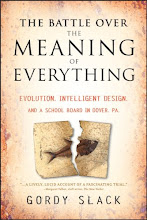The bad news first: A large study in Great Britain shows that people are spending millions of dollars on brain-gym-type exercises that don’t actually strengthen their cognitive powers. The good news: plenty of better, less expensive, more fun, more social, more wholesome things probably do boost your brain power.
The study, a collaboration between researchers the Medical Research Council Cognition and Brain Sciences Unit in Cambridge and BBC Lab UK website, was published in Nature online on Tuesday. It divided a small army of 11,430 test subjects down into three groups. The first spent at least ten minutes a day, three days a week, doing exercises that focused on problem-solving. The second group, spent the same amount of time doing exercises that focused on short-term memory, attention, visuo-spatial abilities and math; these were similar to the kinds of cognitive workout commercial brain-strengthening products push. The third batch, the control group, spent the same amount of time using the web, or whatever resources they wanted, looking up answers to esoteric questions. Over the study’s six-week period, the first two groups improved a little bit at the skills they were practicing, but those improvements didn’t translate to more general cognitive abilities such as memory, reasoning and learning. Basically, practicing games makes you better at the games, but not better at thinking.
Adrian Owen, who led the study, is a neuroscientist at the Medical Research Council Cognition and Brain Sciences Unit in Cambridge. He says that hope that brain software will make you smarter is “completely unsupported.”
I argued that the science didn’t prove the validity of brain training both in my first blog entry here and in an article I wrote for San Francisco Magazine last year. After interviewing lots of top neuroscientists, none of whom spent their time on brain training software, I asked them what they did to keep themselves sharp. No big surprises, but the secret to success is sometimes hidden in the obvious: they all agreed that the brain likes to ride atop a healthy body, it like the oxygen hit it gets from aerobic exercise, it likes to be engaged in meaningful activity (aka work that matters), good food, and probably sex. Sounds better than playing computer games, doesn’t it?



No comments:
Post a Comment